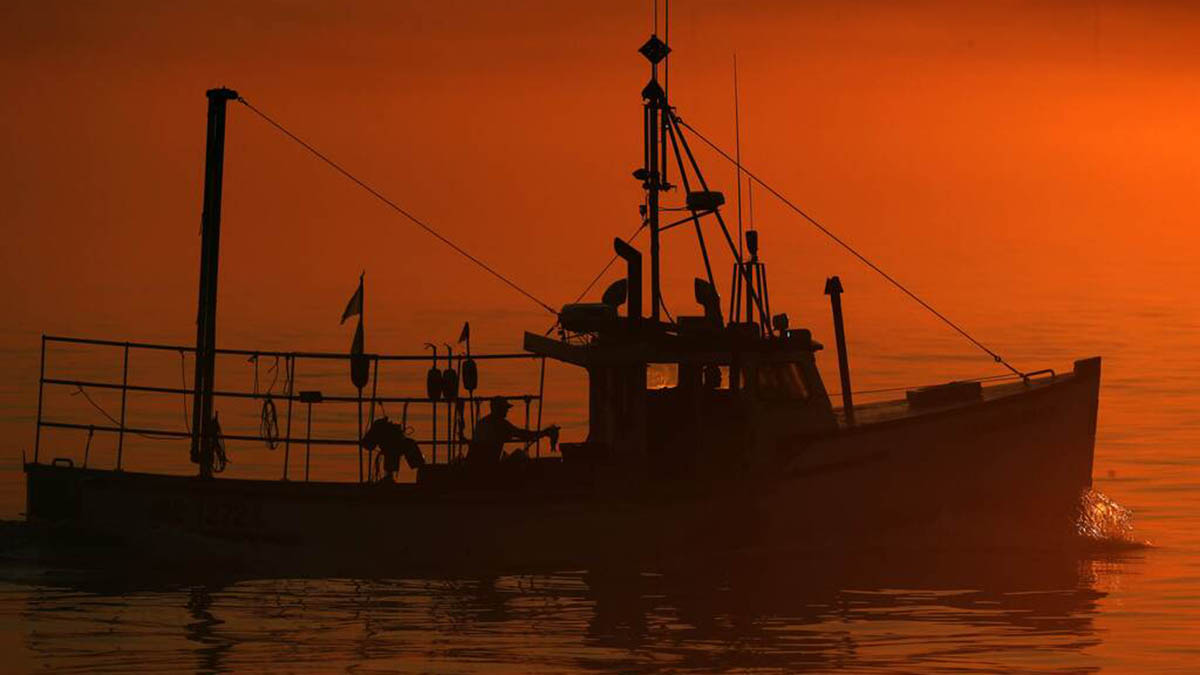A harrowing investigation by the BBC has unveiled the exploitation and trafficking of migrant workers, including Indians, by a Scottish fishing company. The report sheds light on how these workers were subjected to modern slavery while employed by TN Trawlers and its sister companies, owned by the Nicholson family in Annan, Scotland, as detailed in their recent documentary.
Plight of Indian workers
Among the individuals featured in the BBC documentary was Vishal Sharma, a 29-year-old seafarer from Punjab. Sharma had arrived in London in 2017 with a contract to work on a Belgian tanker. However, he was redirected to work on a TN Trawlers scallop trawler. Sharma reported that he was never paid and lacked the necessary experience for the job. Being literally at sea Sharma had nowhere to complain and recounted the isolation and fear faced by many workers. He also faced threats of deportation and imprisonment if he sought help. Another Indian worker, Shine Chakkappan, struggled with financial pressures due to his mother’s illness and took up the job at TN Trawlers, only to be subjected to harsh conditions and mistreatment, as reported in the Times of India.
The BBC investigation
The BBC’s Slavery at Sea documentary, aired recently, revealed the grim reality faced by migrant workers on TN Trawlers. The investigation uncovered that workers from the Philippines, Ghana, India and Sri Lanka were recruited under false pretenses to work on the Nicholson family’s fishing vessels. Conditions on board were described as dire: food and water were scarce, safety regulations were ignored and workers’ passports were confiscated. Many workers, including Indians, were either underpaid or not paid at all, with excessive working hours compounding their suffering.
Operation Alto: A case of exploitation
In the UK, Operation Alto, launched in 2012 by the police in Dumfries and Galloway, starkly illustrated the issue of modern slavery. This investigation focussed on human trafficking and labour abuse at TN Trawlers. Eighteen former employees were identified as victims of trafficking under the Home Office’s National Referral Mechanism, which supports victims of human trafficking. The details of this operation were covered extensively by Scottish Legal News.
Response from maritime charities
A report by The Scotsman revealed that the maritime charity Stella Maris condemned the severe “abuse and exploitation” brought to light by a BBC investigation. Stella Maris, actively involved in supporting these fishermen, characterised the situation as a tragic case of exploitation. The charity emphasised its ongoing commitment to assisting these individuals, offering friendship, pastoral care and financial support. Their goal is to ensure that all fishers are treated with respect and dignity, free from any form of abuse.
Impact Shorts
More ShortsOceana UK, another marine charity, also reacted to the findings, describing the human rights violations as devastating. They expressed solidarity with the affected workers, advocating for the safety, dignity and fair treatment of fishers worldwide, highlighting the urgent need to address these appalling conditions.
TN Group’s rebuttal to allegations
A spokesperson for TN Group challenged the claims of worker mistreatment. The company maintained that it provided food and accommodation to workers, who were “always free to come and go when ashore.” The company emphasised that most workers reported positive experiences denying any involvement in modern slavery or human trafficking and highlighted numerous testimonials from long-term employees.
Grim statistics
The International Transport Workers’ Federation, representing global mariners raised concerns about potential trafficking and abuse of foreign nationals in the UK scampi fleet primarily based in Scotland. A recent report estimated that at least 138 crew members in UK waters have been affected by forced labour or human trafficking. Statistics from Police Scotland obtained through freedom of information legislation reveal that human trafficking in the fishing industry remains a significant issue. Between 2019 and 2021, 11 individuals—five Filipinos, two Ghanaians, two Indians, two Indonesians and one Sri Lankan—were referred to the Home Office’s national referral mechanism for victims of trafficking.
Ongoing efforts and future outlook
In response to the revelations about TN Trawlers and similar cases, there have been calls for more rigorous enforcement of labour rights and improved protections for migrant workers. The UK government has pledged to strengthen measures to combat exploitation in its waters. However, the lack of prosecutions and unresolved cases highlight the need for continued vigilance and systemic reforms. Advocates urge that lessons learned from these investigations be used to create stronger safeguards and support systems to prevent such abuses in the future.
The global context
The situation of modern slavery is part of a larger global crisis. According to the latest Global Estimates of Modern Slavery published by the International Labour Organisation, International Organisation for Migration and Walk Free in September 2022, approximately 50 million people worldwide were living in modern slavery. This includes 28 million in forced labour and 22 million in forced marriages.


)

)
)
)
)
)
)
)
)



